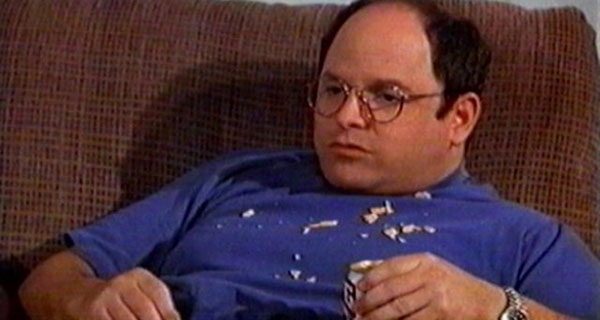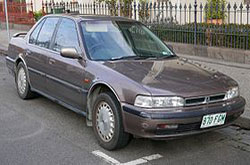03 Nov Having the Drive to Fail
Apparently I’m a failure. While reading Taras Grescoe’s fantastic book Straphanger, I was forced to confront that fact. Grescoe quotes no less an authority on failure than former British prime minister Margaret Thatcher: “A man who, beyond the age of 26, finds himself on a bus can count himself a failure.” That the quote is most likely apocryphal did nothing to cushion the blow of coming face to face with my own inadequacies.
After despairing for days, stuffing myself with microwave popcorn and guzzling Dr. Pepper while Seinfeld reruns played in the background, I began to pull myself together. Just because Mrs. Thatcher feels my lifetime of riding transit is a clear indication of personal failure doesn’t make it so. George Costanza rides the subway, for goodness’ sake!
Once again thanking Seinfeld for validating my life choices, I started to wonder where my transit dependency came from. It’s probably here that I should confess to something—and Mrs. Thatcher, please avert your eyes if you are reading this from beyond the grave—but I’ve never learned how to drive. I grew up in suburban Toronto, which isn’t exactly the friendliest environment for car-free living. My friends got their licenses tout de suite, my parents had a car each, and my older sisters fought over a shared car. All of this is to say that it would have been the most natural thing in the world for me to learn to drive. On my 16th birthday my mother took me to get my learner’s permit, so it’s not like I lacked opportunity. I just never took that next step.

Me after receiving the news that I was a failure
I never got behind the wheel and actually drove. I made the conscious decision not to. It was a decision that puzzled my friends, and annoyed the hell out of my mother, though I give her credit for never forcing the issue and signing me up for lessons. Maybe on some level she recognized why I made the choice I did.
Every car commercial I’ve ever seen sells the idea that, despite appearances to the contrary, a car doesn’t get you from point A to point B. A car gets you to freedom. But to teenage David, cars seemed more like prison sentences. Why bother with getting places on four wheels—which meant being tied down in traffic, fighting with siblings and getting a part-time job just to pay for gas—when I could use two wheels or no wheels at all?

Me after receiving the news that I was a failure
My own two feet and my bike gave me the independence and self-confidence those car commercials promised. I could get anywhere I wanted to go and didn’t need anyone’s help or permission getting there. The more I thought about it, the more I realized that my transformation from awkward, shy, unconfident teenage David to awkward, shy, confident adult David started with the decision to not rely on a car. Plus, I was certain I looked irresistible arriving at my girlfriends’ homes in my cycling gear, which at the time consisted of sweatpants with an elastic band tied around the ankle. Surprisingly, I never did date all that much in high school.
Older now, my fashion sense has improved and my awareness of the benefits of active transportation has grown exponentially. The environmental, economic, and physical, emotional and mental benefits to living car-free have been well documented. For me, though, I always come back to the foundation of self-confidence that was built through freedom of mobility. It’s a gift that has given me so much, making it a rather peculiar failure, wouldn’t you say, Mrs. Thatcher? The real failure might just lie with cities not enabling more teens to have the kind of experience I did.



